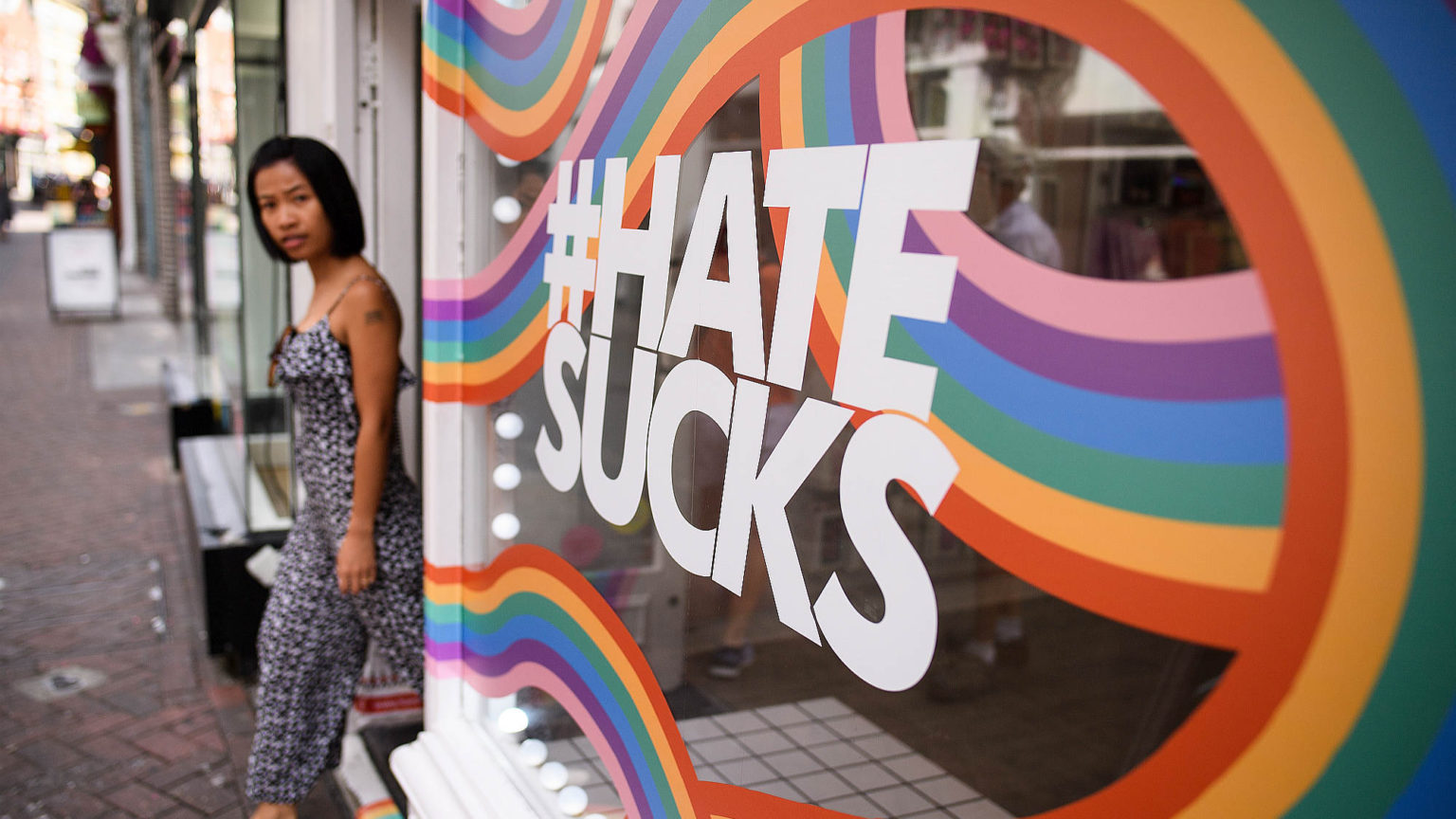‘Diversity’ is the enemy of equality
Woke initiatives in the workplace are doing far more harm than good.

Want to read spiked ad-free? Become a spiked supporter.
The road to hell, it turns out, is paved with pronoun badges and Black History Month flyers. A new report, commissioned by the UK government, has confirmed what many have long suspected – namely, that equality, diversity and inclusion (EDI) schemes are doing more harm than good.
The Inclusion at Work panel – made up of private- and public-sector experts and advised by a Harvard University professor – was convened by equalities minister and business secretary Kemi Badenoch last year to assess the effectiveness of EDI measures. Their findings, published this week, could hardly be more damning.
According to the report, EDI practices are ‘polarising’, ‘counterproductive’ and in some cases even ‘unlawful’. Apparently, employers are often so desperate to be seen ‘doing the right thing’ that they rush into initiatives that don’t even work on their own terms.
The Inclusion at Work panel cites research from the Chartered Institute of Personnel and Development, which found that a frightening number of business leaders say they did not do any research before launching their EDI schemes. Many are simply responding to the political fads of the moment. One in four bosses admit that their approach to diversity has been ‘reactive’, for instance, ‘in response to societal events like the Black Lives Matter protests’.
Thanks in part to this ‘shoot first, think later’ approach taken by woke-minded employers, EDI schemes often end up being discriminatory and exclusionary, rather than empowering or inclusive. The report notes that some employers have even inadvertently broken the law in pursuit of a more diverse workforce. So-called positive discrimination is relatively common, even though this is illegal under the Equality Act 2010.
The report cites the case of the Royal Air Force. Back in 2022, it began to overlook eminently qualified white applicants, hoping this would help it to meet its diversity targets for female and ethnic-minority recruits. This was found to be unlawful and the passed-over candidates have since received financial compensation. Similarly, the report refers to the landmark case of Maya Forstater, who lost her job for expressing gender-critical views. In an attempt to be ‘inclusive’ of trans people, her employer actually ended up breaking anti-discrimination laws by firing her.
These are not isolated cases. Data suggest that EDI training has not reduced discrimination claims against employers, but has actually increased them. Data from employment tribunals show that there has been a significant rise in cases brought using the Equality Act in the 2020s compared with the 2010s. Employers who thought they could indemnify themselves against discrimination lawsuits by embracing EDI are in for a rude awakening.
One group that has certainly faced more discrimination at the hands of EDI is the working classes. Despite all the data showing that ‘white working-class populations [are] often more disadvantaged than ethnic-minority groups… this is rarely a priority in [EDI] interventions’. Indeed, many employers are simply too blinded by identity politics to recognise class. Through the lens of critical race theory, a white British male from a council estate is viewed as inherently more ‘privileged’ than, say, a privately educated woman of Nigerian extraction, even though the latter will have had many more advantages in life. EDI schemes only ever entrench this class inequality.
It’s true that most employers mean well when they decide to implement EDI measures. Unfortunately, as the report points out, the activist groups they outsource their training to are not usually motivated by the same fair-minded goals. Rather, these organisations tend to be committed to divisive ideologies like critical race theory. As Badenoch explains in the Telegraph, ‘just this week, a government minister found that the training materials for one of their departmental quangos included references to outmoded concepts like “unconscious bias” and “white privilege”’. This is not the language of true anti-racism, but the poisonous and divisive terminology of race activists.
Such activism is now absolutely endemic in the public sector. According to one estimate cited in the report, the government is currently spending around £557million a year on EDI roles. Earlier this month it was reported that local councils have almost doubled their spending on EDI in just the past three years. A diversity leader in a large council can net a six-figure salary. It seems that racial identitarians can make a small fortune on the taxpayers’ dime.
The Inclusion at Work report should be a wake-up call to anyone who still thinks we need EDI to promote equality. At best, EDI is a waste of everyone’s time and money. At worst, it is actively making the UK a less equal and more divided place.
Lauren Smith is a staff writer at spiked.

Matt Ridley and Brendan O’Neill – live and in conversation
Thursday 21 March – 7pm to 8pm GMT
This is a free event, exclusively for spiked supporters.
Picture by: Getty.
Celebrate 25 years of spiked!
A media ecosystem dominated by a handful of billionaire owners, bad actors spreading disinformation online and the rich and powerful trying to stop us publishing stories. But we have you on our side. help to fund our journalism and those who choose All-access digital enjoy exclusive extras:
- Unlimited articles in our app and ad-free reading on all devices
- Exclusive newsletter and far fewer asks for support
- Full access to the Guardian Feast app
If you can, please support us on a monthly basis and make a big impact in support of open, independent journalism. Thank you.







Comments
Want to join the conversation?
Only spiked supporters and patrons, who donate regularly to us, can comment on our articles.